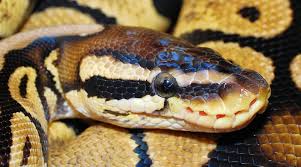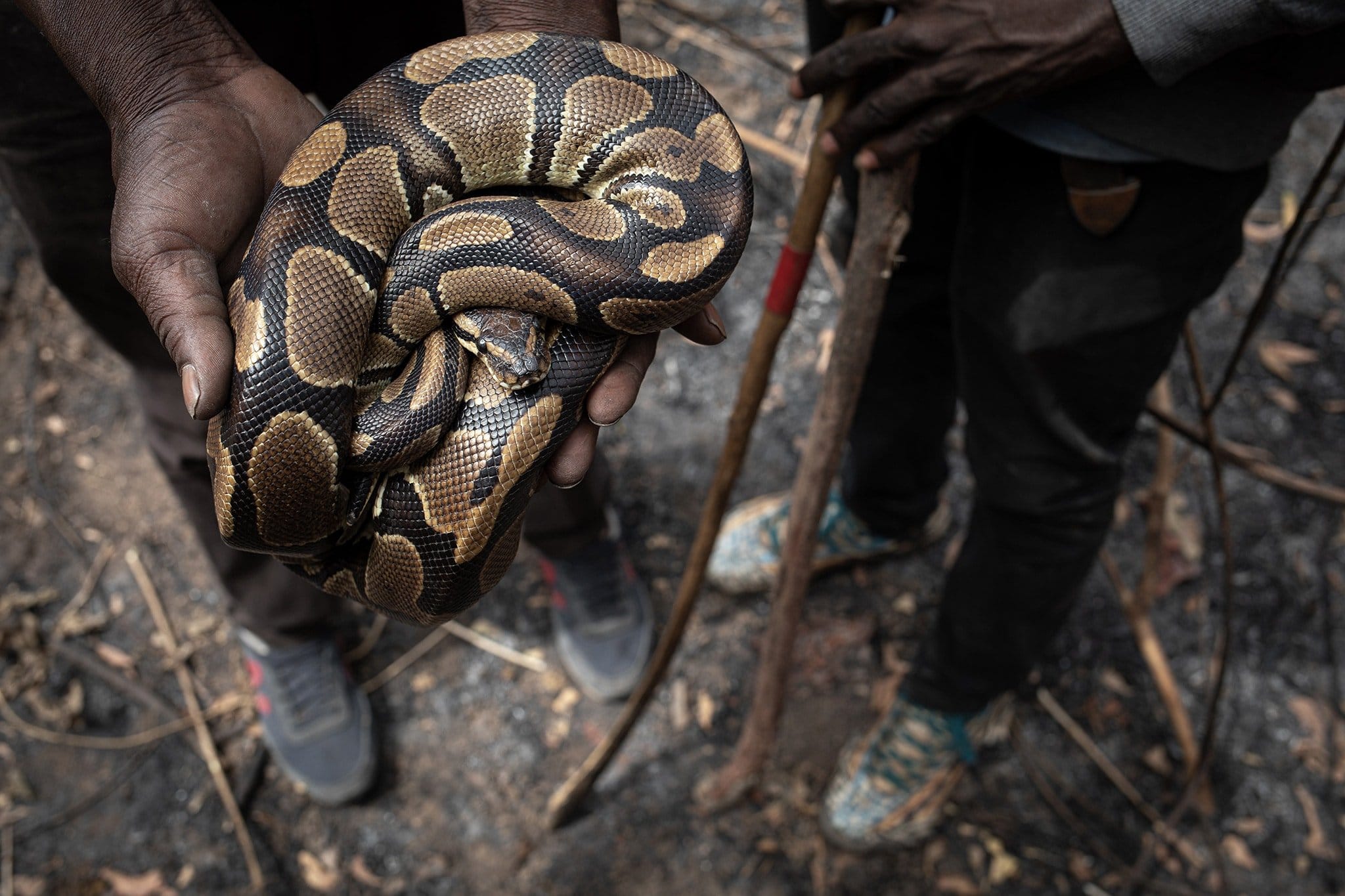A study published in Nature Conservation showed that ball pythons were the most traded CITES-listed live animal. Traders export them legally from Africa for onward sale as exotic pets. Their trade is backed by a belief system that these animals are not sentient and incapable of feeling emotions or pain. But this is not true.
Limited relevant research shows that reptiles are capable of a variety of intellectual abilities. These studies prove that reptiles can feel emotions like stress, anxiety, fear, and pain. As a result, they may undergo suffering during capture and captivity.
How do poor regulations impact the trade of ball pythons?
Trade policies that govern the capture, breeding, and sale of ball pythons do not adequately protect these animals. This is especially the case for the process of ranching ball pythons. Ranchers do not report their farming methods accurately. Very little information is provided about management practices, including the amount of wild-caught pythons at the ranches.
Even the ranchers do not carefully document the mortality rate of the ball pythons during their capture and transportation. Because of the large number of pythons caught and traded every year, experts feel that even 1% mortality rate could mean over a thousand deaths.
Additionally, neither the traders nor the ranchers report the distribution, size, and trends of ball pythons correctly.
What would happen if ball pythons disappeared from the wild?
The wiping out of an entire species of animal can have a range of effects on the food chain and on local communities too. The ball python plays an important role in pest control for farming communities in Africa. These reptiles save Central and Western Africa millions of dollars every year through crop protection.
An absence of ball pythons from the wild will leave the crops unprotected from pests that are otherwise consumed by the pythons. Once the food chain is broken, pests will become a major problem for agro-based communities. Consequently, the farmers may have to invest heavily on crop protection. This will affect their revenue from the crops and may impact overall crop prices too.
Are ranches a suitable solution for saving ball pythons vanishing from the wild?

Ranches happen to be a viable solution for breeding and trading ball pythons. The species is currently listed under the ‘Least Concerned’ category of IUCN red list. For now, the species is not threatened. But experts feel that the rate at which traders catch ball pythons from the wild and sell them in the markets, it may be threatened soon.
Presently, because of poor regulations, the ranches are not operating effectively. Traders catch most of the snakes from the wild. Traders catch pregnant females or eggs from the wild and they sell the baby pythons almost immediately. As a result, captive breeding of the pythons is not happening in most ranches.
Another problem in ranches is that different species of animals live in close proximity to each other. This causes species to cross when they wouldn’t normally cross in the wild. Additionally, diseases from one species can easily pass on to the other. Since they live in very stressful situations, their immunity systems are not strong and they are more vulnerable to diseases.
Animal Club has ball pythons as one of the wild animals which we bring to animal handling workshops and for animal parties. We take a lot of care to ensure that they live in comfortable conditions free of diseases or infections. Our teams conducting animal workshop, animal party or animal school visit, take a lot of care to source animals responsibly and ensure that they are well cared for. We advocate for highly regulated trade policies and ensure the protection of all animals.
We also offer mobile zoo which is great for events like birthday parties. You don’t have to take the hassle of group traveling and let the kids at the party having an exotic animal experience at the same time.



